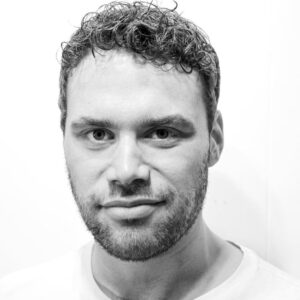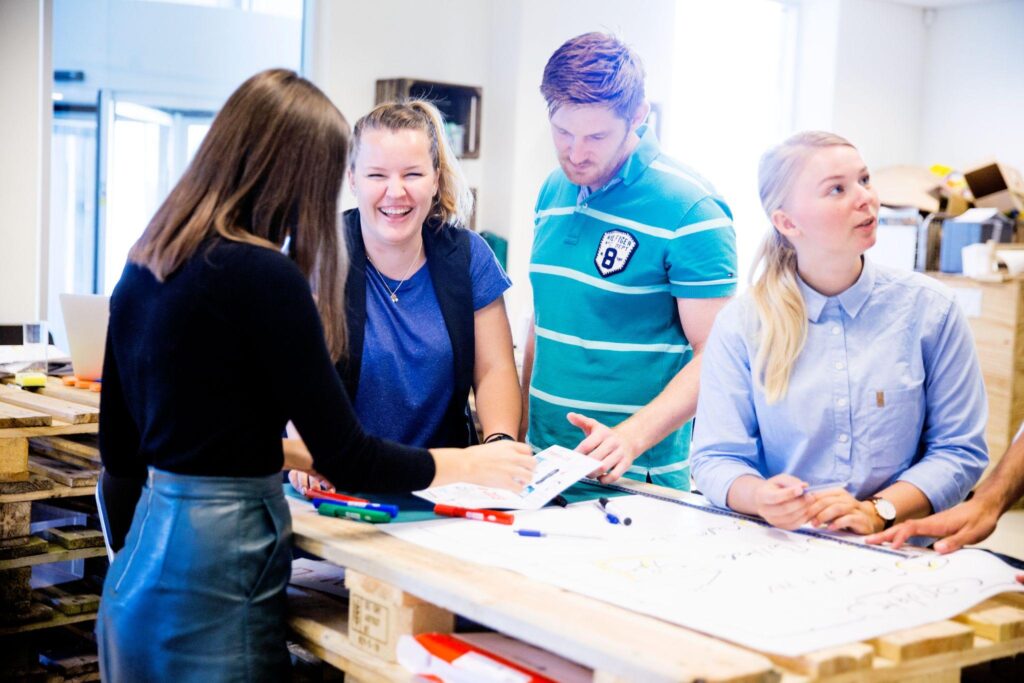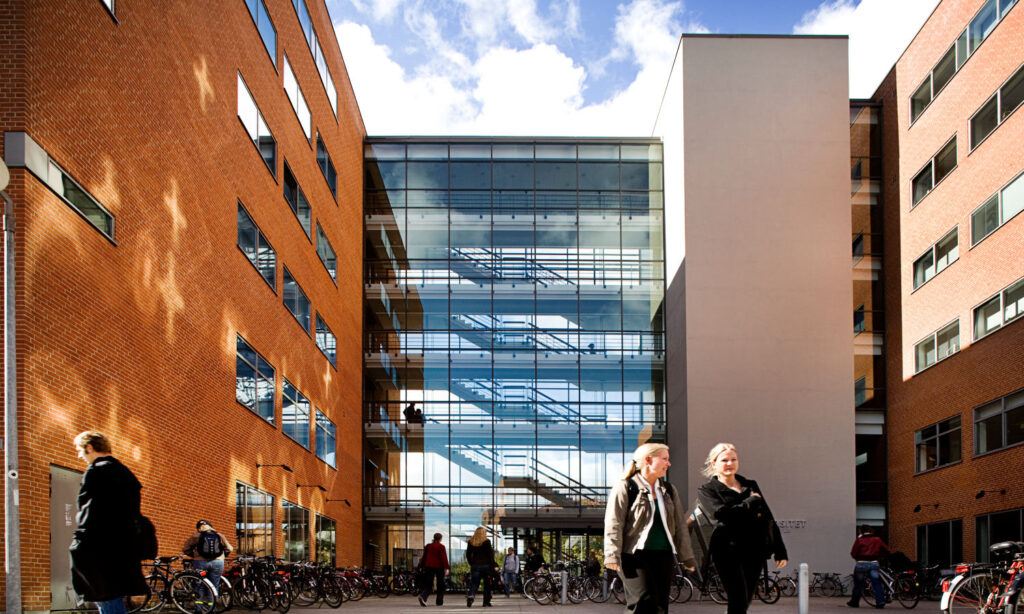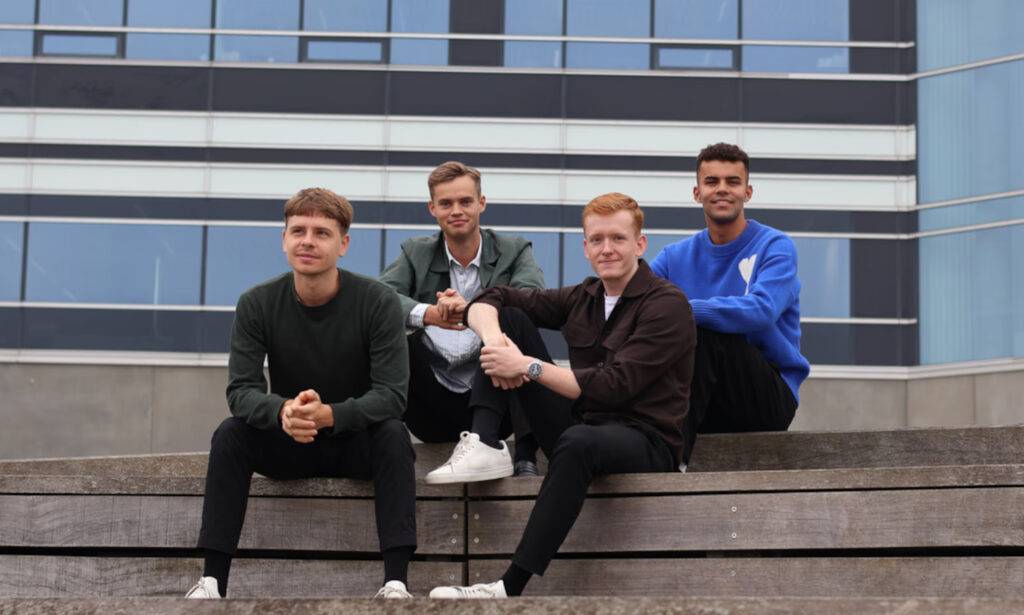This post is also available in: Danish
Four ideas were chosen as the most promising and promising out of the eight ideas pitched from the stage at the cluster’s annual meeting Food & Bio Summit 2024 at Centralværkstedet in Aarhus.
Food & Bio Cluster Denmark has just held its 18th idea competition, where food and bioresources entrepreneurs receive validation and financial backing to realize their idea. Eight out of 43 applicants had to be selected. Therefore, the ideas that remained lived up to all the requirements that represent the cluster.
The winners were chosen by a jury consisting of the competition’s sponsors and a voting audience.
“We are thrilled with the high volume of applicants and the high level of ideas. A green transition of the agriculture and food sectors requires new thinking and innovation as well as better commercialization of research. This is where startups come in. Startups are basically born innovative (as it is one of their only competitive parameters) and often born out of universities,” says Claus Mortensen Head of business acceleration at Food & Bio Cluster Denmark in a statement and continues:
“The purpose of the competition is to identify tomorrow’s solutions in the form of early ideas and motivate entrepreneurs to take the leap. We value the collaboration with the entrepreneurial communities at Danish universities and look forward to next year’s competition, where we are already starting to find partners.”
The four winners
Here are the four winners who each received DKK 50,000 to further develop their idea:
BerryFresh
BerryFresh pitched their product Nanovera, an edible film made from Aloe vera that can significantly extend the freshness and shelf life of berries, thus addressing food waste issues in the supply chain. With low production costs, Nanovera offers a solution for farmers and fruit distributors that can potentially reduce the 50% annual food waste of fruits and vegetables.
Yngvik
Yngvik’s packaging film offers a home-compostable and marine-degradable polymer made from waste products, promoting circular production and reducing environmental damage. Unlike traditional bioplastics, Yngvik’s material remains flexible over time without the use of endocrine disrupting chemicals.
Green agricultural innovation through water innovation
Next generation PFAS (Per- and polyfluoroalkyl substances) treatments pose serious risks to food and agriculture due to their persistence and potential for bioaccumulation. To counter this, Yifeng Zhang, the man behind the idea, proposes the use of UV photolysis of lactic acid (HCOOH) as a green and efficient method to degrade PFAS in water under ambient conditions.
NanoGuard
A new platform technology for eco-friendly agricultural insecticides that addresses the significant social, health and economic impacts of insect infestations globally. NanoGuard has found a solution tailored to different crops while minimizing biodiversity loss and protecting human health.











 Kære læser, du er meget velkommen til at dele vores artikler på sociale medier, linke eller referere til artikler eller content på TechSavvy.media. Men ønsker du helt eller delvist at kopiere indhold fra sitet må det kun ske efter aftale med vores redaktion på editorial@techsavvy.media.
Kære læser, du er meget velkommen til at dele vores artikler på sociale medier, linke eller referere til artikler eller content på TechSavvy.media. Men ønsker du helt eller delvist at kopiere indhold fra sitet må det kun ske efter aftale med vores redaktion på editorial@techsavvy.media.
 Kære læser, du er meget velkommen til at dele vores artikler på sociale medier, linke eller referere til artikler eller content på TechSavvy.media. Men ønsker du helt eller delvist at kopiere indhold fra sitet må det kun ske efter aftale med vores redaktion på editorial@techsavvy.media.
Kære læser, du er meget velkommen til at dele vores artikler på sociale medier, linke eller referere til artikler eller content på TechSavvy.media. Men ønsker du helt eller delvist at kopiere indhold fra sitet må det kun ske efter aftale med vores redaktion på editorial@techsavvy.media.